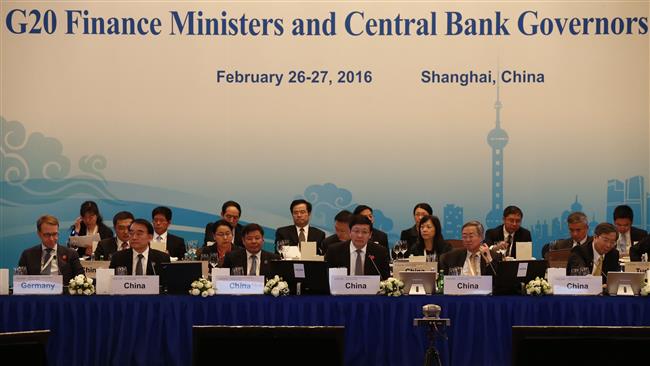-
Tips for becoming a good boxer - November 6, 2020
-
7 expert tips for making your hens night a memorable one - November 6, 2020
-
5 reasons to host your Christmas party on a cruise boat - November 6, 2020
-
What to do when you’re charged with a crime - November 6, 2020
-
Should you get one or multiple dogs? Here’s all you need to know - November 3, 2020
-
A Guide: How to Build Your Very Own Magic Mirror - February 14, 2019
-
Our Top Inspirational Baseball Stars - November 24, 2018
-
Five Tech Tools That Will Help You Turn Your Blog into a Business - November 24, 2018
-
How to Indulge on Vacation without Expanding Your Waist - November 9, 2018
-
5 Strategies for Businesses to Appeal to Today’s Increasingly Mobile-Crazed Customers - November 9, 2018
China’s finmin says structural reforms key to global economy
The global recovery was continuing but “remains uneven and falls short of our ambition for strong, sustainable and balanced growth”, the G20 finance ministers and central bank chiefs said in a communique in Shanghai.
Advertisement
An official with a European delegation to the G20 earlier in the week said policymakers recognize elevated risks and will express the need for coordinated action in their joint communique at the summit.
But disagreements about the right remedy overshadowed the meeting, after Germany’s Finance Minister Wolfgang Schaeuble said attempts to boost economies with monetary loosening could be counterproductive and fiscal stimulus – governments spending more or cutting taxes – had run its course.
The G-20 statement acknowledged that “vulnerabilities have risen” in the global economy against a backdrop that includes volatile capital flows, the European refugee crisis and the possibility of a British exit from the European Union.
The governor of the Bank of England, Mark Carney, used his voice at a pre-meeting conference to warn against a rush towards ever negative interest rates – already adopted by the the likes of the European Central Bank (ECB) and Bank of Japan.
“The debt-financed growth model has reached its limits”.
“It is even causing new problems, raising debt, causing bubbles and excessive risk taking, zombifying the economy”, he said, instead urging other countries to deliver on reforms instead.
It is also important that all G-20 members honor their commitments to refrain from competitive devaluation, and to not target exchange rates for competitive purposes.
Continued turbulence in the stock market and yuan depreciation at the start of 2016 did little to disguise what could be a very hard year ahead, putting the country’s economic policies and reform agenda in spotlight at Friday’s meeting.
The yuan has become “a proxy for broader concerns about China’s economy”, said former U.S. Treasury Secretary Henry Paulson, who spoke immediately after Mr. Zhou at the forum hosted by the Institute of International Finance on the G-20 sidelines.
China’s Finance Minister Lou Jiwei also sought to reassure markets, denying speculation that other countries would put pressure on Beijng to devalue its currency further – and calling for G-20 countries to work together more on economic policy, and to reduce barriers to cross-border trade and business, Chinese media reported.
The International Monetary Fund last month trimmed its global growth projections and said 2016 would be a “year of great challenges”.
But China’s actual currency policy since then has been marked by twists and turns that have sown confusion in global markets, in particular about what metrics central bankers are monitoring as they set daily exchange rates.
Yet central bank governor Zhou said Friday that while China wanted to develop its equity markets, it would take time for them to mature. “Fiscal policy? Reform?” said Richard Jerram, the chief economist at Bank of Singapore Ltd. “After six or seven years of trying to promote recovery there is no appetite for fiscal stimulus, and no easy or obvious reforms that have been neglected”. “The Chinese economy will continue to grow at a moderate-to-high pace”. “That’s competing in a beggar-thy-neighbor way to share a pie that’s either frozen or shrinking, and it doesn’t lead anywhere good”.
For its part, Japan signaled a desire to avoid confrontation at the gathering, which occurs less than a month after the Bank of Japan roiled markets with a surprise move to adopt negative interest rates.
Advertisement
China’s economic slowdown has sharply pulled down oil and other commodity prices, with investors showing risk aversion in the preference of their assets and pulling money out of emerging countries.





























